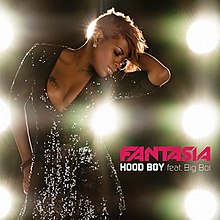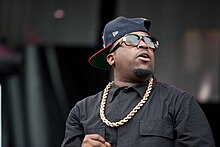
Joseph Lewis Thomas, known mononymously as Joe, is an American R&B singer. He signed to Polygram Records in 1992, and rose to prominence after releasing his debut album Everything the following year. He followed it with a series of successful albums under Jive Records, including All That I Am (1997), the international bestseller My Name Is Joe (2000) as well as the multi-certified albums Better Days (2001) and And Then... (2003). Several songs from these albums became hit singles on the pop and R&B record charts, including the number-one hit "Stutter", the top ten entries "All the Things ", "Don't Wanna Be a Player", and "I Wanna Know" as well as his collaborations "Faded Pictures", "Thank God I Found You" and "Still Not a Player".
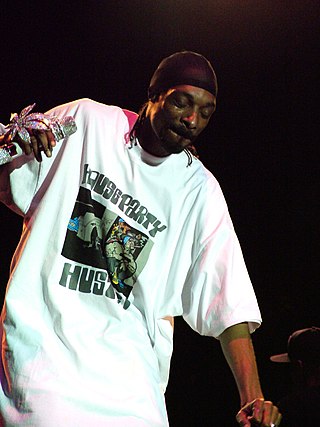
The discography of American rapper Snoop Dogg consists of 19 studio albums, five collaborative albums, 17 compilation albums, three extended plays, 25 mixtapes, 175 singles, and 16 promotional singles. He has sold over 12.5 million albums in the United States and 37 million albums worldwide. He has garnered 14 top ten singles on the Billboard Hot 100.
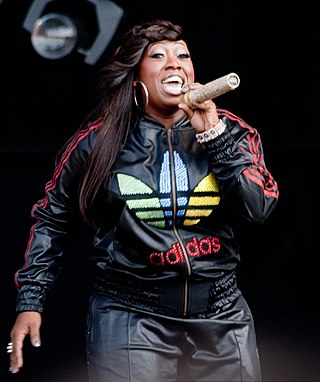
The discography of American rapper and record producer Missy Elliott consists of six studio albums, three compilation albums, one extended play, seventy-four singles and twenty solo music videos.
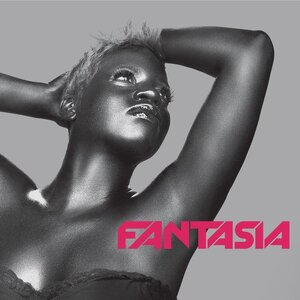
Fantasia is the second studio album by American recording artist Fantasia. It was released by J Records on December 12, 2006 in the United States. Fantasia reteamed with Harold Lilly, Swizz Beatz and Missy Elliott and her team – all of which had contributed to her debut album to work on the project. The label also consulted new collaborators to record with her, including Babyface, Dre & Vidal, Kwamé, and Midi Mafia. Elliott, rapper Big Boi and Fantasia's brother Ricco appear as guest vocalists on the album.

The discography of American R&B and gospel singer Fantasia, consists of seven studio albums and 24 singles. At the age of nineteen, she won the third season of American Idol, earning a record deal with 19 Entertainment and J Records. The season's coronation song, "I Believe", debuted at number one on the Billboard Hot 100. It also peaked at number one in Canada, in addition to reaching numbers four and twenty in Australia and New Zealand, respectively.

The discography of American rapper Sean Combs consists of five studio albums, two collaborative albums, one remix album and seventy-two singles – including thirty-three as a lead artist and thirty-nine as a featured artist.

"When I See U" is a song recorded by American singer Fantasia Barrino for her second studio album, Fantasia (2006). It written by Louis Biancaniello, Waynne Nugent, Erika Nuri, Kevin Risto, Janet Sewell, Sam Watters, and produced by Midi Mafia along with Mzmeriq. A R&B ballad, it was released to positive reviews by critics as the album's second single in April 2007. Its digital release spawned several remixes, three of which featured rappers Remy Ma, Young Jeezy, Lumidee, B.G. and Polow da Don.

American rapper Busta Rhymes has released eleven studio albums, three compilation albums, eight mixtapes, one hundred and eight singles, fourteen promotional singles and fifty-six music videos. Busta Rhymes signed his first recording contract with Elektra Records at the age of just 17, as a member of hip-hop group Leaders of the New School. Though the group would disband in 1994, a number of well-received guest appearances on songs by artists including A Tribe Called Quest and Mary J. Blige led Elektra to offer Busta Rhymes a solo contract in 1995. His debut studio album, The Coming, was released the following year, with lead single "Woo Hah!! Got You All in Check" reaching number eight on the United States Billboard Hot 100 and being certified gold by the Recording Industry Association of America (RIAA). As of 2019 Busta Rhymes has sold around 9,000,000 albums.
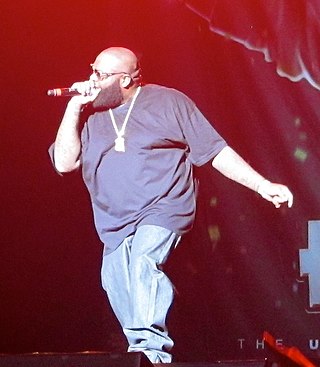
The discography of Rick Ross, an American rapper, consists of 11 studio albums, one compilation album, 145 singles, one soundtrack, and 40 music videos. Ross's debut studio album, Port of Miami (2006), features two singles with "Hustlin'" and "Push It". Ross's second studio album, Trilla (2008), produced hit singles such as "The Boss" and "Here I Am". Ross's third studio album, Deeper Than Rap (2009), includes the singles such as "Magnificent" and "Maybach Music 2". Ross's fourth studio album, Teflon Don (2010), includes the hit single, "Aston Martin Music".

The discography of American rapper Birdman consists of four studio albums, three collaborative albums, two mixtapes, 23 music videos, 48 singles, including 23 as a featured artist, and 7 promotional singles. In 2002, Birdman released his debut studio album Birdman under the stage name Baby. It peaked at number 24 on the US Billboard 200, spending 23 weeks on the chart. Three singles were released from the album; the first, "Do That...", reached number 33 on the US Billboard Hot 100, and the second, "What Happened to That Boy", reached number 45 on the same chart. The third single, "Baby You Can Do It", only charted on the US Hot R&B/Hip-Hop Singles Sales chart. In 2003, Birdman collaborated with singer Ginuwine on the single "Hell Yeah" and rapper Bow Wow on the single "Let's Get Down", which reached numbers 17 and 14 respectively on the Hot 100.
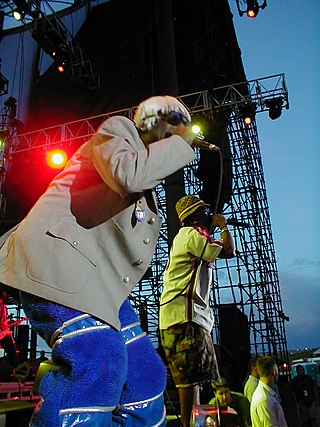
The discography of Outkast, an American hip hop duo, consists of six studio albums, one compilation album, one soundtrack album, one video album, 32 singles, three promotional singles, and 21 music videos. In 1992, Outkast became the first hip hop act to be signed to the label LaFace Records; with their first studio album Southernplayalisticadillacmuzik (1994) that debuted at number 20 on the US Billboard 200. Southernplayalisticadillacmuzik spawned the commercially successful single "Player's Ball", which reached number 37 on the US Billboard Hot 100. It was later certified gold by the Recording Industry Association of America (RIAA). Their following two albums, ATLiens (1996) and Aquemini (1998), were commercially successful in the United States; both albums peaked at number two on the Billboard 200, and were certified double-platinum by the RIAA. Three singles were released from each album; all three from ATLiens charted on the Billboard Hot 100, with "Elevators " peaking at number 12, making it the most successful. The lead single from Aquemini, "Rosa Parks", peaked at number 55 on the Billboard Hot 100: two more singles, "Skew It on the Bar-B" and "Da Art of Storytellin' ", were released from the album. In 1998, Outkast collaborated with hip hop group Goodie Mob on the single "Black Ice " and with rapper Cool Breeze on the single "Watch for the Hook"; the singles peaked at numbers 50 and 73 on the Billboard Hot 100, respectively.
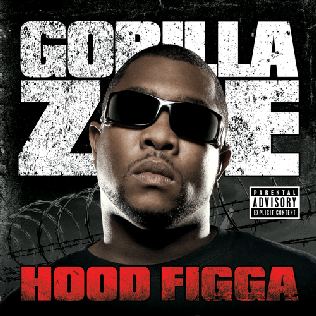
"Hood Nigga" is a song by American hip hop recording artist Gorilla Zoe, released as the lead single from his debut album, Welcome to the Zoo. It was officially released via iTunes, on April 24, 2007. The song was produced by Chris Flame and Dee Jay Dana.

"I'm So Hood" is a song by American musician DJ Khaled featuring American rappers T-Pain, Trick Daddy, Rick Ross, and Plies, released as the second single from the former's second studio album We the Best (2007). "I'm So Hood" is one of Khaled's best-known songs.

"Duffle Bag Boy" is the debut single by American hip hop duo Playaz Circle featuring Lil Wayne, released as the lead single from the former's debut album, Supply & Demand (2007). The song was produced by M16 and Liam Kantwill. The song peaked at number 15, reaching in the Top 40 of the U.S. Billboard Hot 100.

The discography of American rapper Big Boi consists of three studio albums, one mixtape, twenty-two singles, five promotional singles and twenty-five music videos. Big Boi initially achieved success as a member of the hip hop duo Outkast with fellow rapper André 3000; they have recorded and released six studio albums together, and the singles "Ms. Jackson", "Hey Ya!" and "The Way You Move" have all topped the US Billboard Hot 100. Big Boi guest appeared on the 1995 single "Dirty South" by Atlanta-based hip hop group Goodie Mob, which entered the Billboard Hot 100. During the late 1990s and early 2000s, he made other appearances on commercially successful singles including "All n My Grill" by Missy Elliott, "A.D.I.D.A.S." by Killer Mike and "Girlfight" by Brooke Valentine—each likewise entered the Billboard Hot 100.
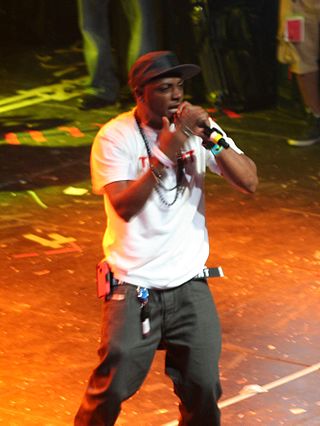
The discography of American rapper Mystikal consists of six studio albums, two compilation albums, twenty-five singles and fifteen music videos. In 1994, Mystikal released a self-titled album on the independent record label Big Boy. Following his signing to Jive Records in 1995, the album was re-released under the title Mind of Mystikal as his debut studio album. Mind of Mystikal peaked at number 103 on the US Billboard 200 and at number 13 on the US Top R&B/Hip-Hop Albums chart. The album featured the single "Y'all Ain't Ready Yet", which peaked at number 41 on the US Hot R&B/Hip-Hop Songs chart. Mystikal's following two studio albums, Unpredictable and Ghetto Fabulous, were both released on the record label No Limit Records; Jive distributed the albums rather than No Limit's distributor, Priority Records. Both peaked in the top five of the Billboard 200 and were later certified platinum by the Recording Industry Association of America (RIAA). Each of the albums featured one single, "Ain't No Limit" and "That's the Nigga", respectively. Both songs peaked in the top 65 of the Hot R&B/Hip-Hop Songs chart.

Victory is the fourth studio album by American disc jockey and record producer DJ Khaled. It was released on March 2, 2010, by We the Best Music Group and E1 Music.

Outkast was an American hip hop duo formed in Atlanta, Georgia, in 1992, consisting of rappers Big Boi and André 3000. Widely regarded as one of the most influential hip hop artists of all time, the duo achieved both critical and commercial success from the mid-1990s to the early 2000s, helping to popularize Southern hip hop with their intricate lyricism, memorable melodies, and positive themes, while experimenting with a diverse range of genres such as funk, psychedelia, jazz, and techno.
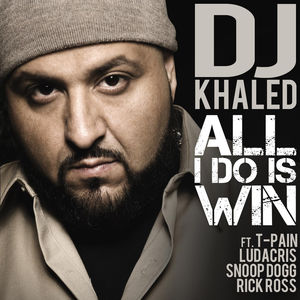
"All I Do Is Win" is a song from DJ Khaled's fourth studio album Victory (2010). It was the third single from the album. The track features American rappers T-Pain, Ludacris, Snoop Dogg and Rick Ross. It was released on February 8, 2010, along with "Put Your Hands Up". The song peaked at number 24 on the US Billboard Hot 100 chart. The single was certified triple platinum by the Recording Industry Association of America (RIAA).

American rapper Big Sean has released five studio albums, four mixtapes, thirty-one singles, eight promotional singles, and thirty-nine music videos. In 2008, Big Sean was discovered by American rapper and record producer Kanye West, who signed Sean to his record label GOOD Music—distributed through Def Jam Recordings. Since 2008, after signing a record deal to West's label G.O.O.D. Music, Sean's career continued through his mixtapes such as Finally Famous Vol. 2: UKnowBigSean (2009) and Finally Famous Vol. 3: BIG (2010). While he was releasing these mixtapes, he collaborated on various tracks and/or singles from West, Royce da 5'9" and Chris Brown.
